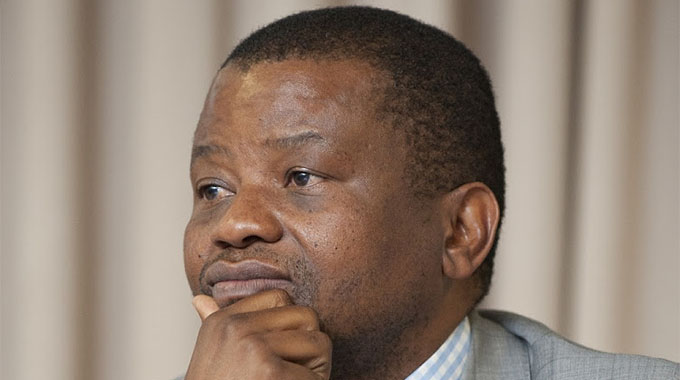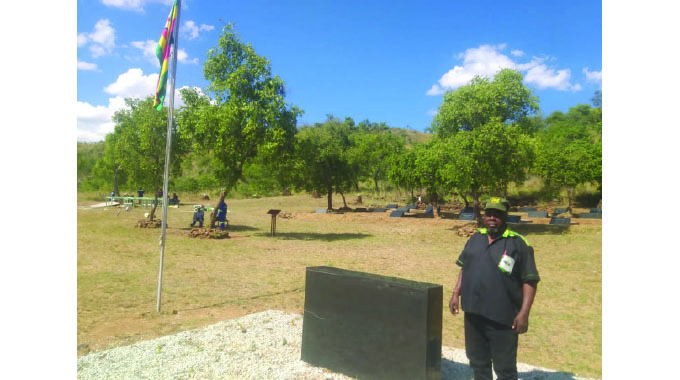Social justice for economic prosperity

Beaven Dhliwayo Features Writer
Just like other parts of the globe, today Zimbabwe commemorates World Day of Social Justice which calls for peaceful and prosperous coexistence within and among nations.
Countries uphold principles of social justice when they promote gender equality, or the rights of indigenous peoples and migrants.
Social justice revolves around the development and understanding of retributive and distributive principles, their association with historical situations and the political economy, the impact of their institutionalisation on both the individual and social development, and their assessment through various criteria and/or processes.
Social justice focuses on justice in the social context rather than solely on the individual as the concept encompasses understanding how multitudes of people interact both within and between themselves (Barry, 2005).
Nations advance social justice when they remove barriers that people face because of gender, age, race, ethnicity, religion, culture or disability.
Thus the issue becomes important for Zimbabwe as it works towards the attainment of an upper middle income economy which entails equal opportunities for everybody.
This year’s theme: “Closing the Inequalities Gap to Achieve Social Justice” should guide the country in its policy formulation going forward.
For the United Nations, in which Zimbabwe is a member, the pursuit of social justice for all is at the core of the global mission to promote development and human dignity.
The adoption by the International Labour Organization of the Declaration on Social Justice for a Fair Globalisation is just one recent example of the UN System’s commitment to social justice.
This Declaration focuses on ensuring fair outcomes for all, through employment, social protection, social dialogue, and fundamental principles and rights at work.
Critical for nations is that the concept of social justice cannot be dealt without economic justice.
Today, the issue of social economic justice has taken global attention by storm.
Institutions are a reflection of organised interactions among individuals where social justice acts as the key guiding virtue.
Economic justice relates to the social order and the individual person as well as it revolves around the moral principles that guide the design of economic and social institutions.
An economic justice system revolves around three interdependent principles encompassing: the distribution principle; the participation principle; and the principle of harmony (Bilchitz, 2007).
The concept of social-economic justice developed from the struggles revolving around the advent of socialist movements, the industrial revolution and the emergence of Christian and social democrats.
Reports by the United Nations point out that there has been a parallel increase in world income disparities as technological and most other modern innovations essential for economic justice only originate form rich nations.
This has led to restrictions on social mobility which contributes significantly to social segmentation results.
At the inception of the concept, it was regarded that the social compact and living standards would improve relatively.
Socio-economic justice is the major basis for regional and international integration.
Inequality is increasingly becoming a cause for concern globally and in Zimbabwe.
The disparities in access to equal opportunities and rights including health, education, water and sanitation and even information are too high to ignore.
The rich are becoming richer whilst the poor are becoming poorer.
The imbalances in terms of rights, status and opportunities have created a world of the haves and the have nots and it calls for global concerted efforts to bridge this gap.
The adverse effects of inequality on individuals and national development cannot be over-emphasised.
These include, erosion of human dignity, social disharmony, mistrust, societal violence, economic regression and deepening poverty.
This implies that social justice cannot be achieved without peace and security, or without respect for all human rights and fundamental freedoms.
For example, a survey by the International Labour Organisation (ILO), states that almost 90 percent of the world’s 67 million domestic workers have no social security benefits today.
Most of their job becomes undervalued and unpaid when domestic workers are aged or injured, without a pension or sufficient income support it becomes very difficult for them to survive.
This can be typical of various professions in the country where many workers have no pension plans.
Hence from this World Social Justice Day, Zimbabwe should work towards improving the living standards of people and at the same time address serious challenges like financial crises, insecurity, poverty, exclusion and inequality within and among societies.
Although the country’s economy is showing positive signs and growing at a decent pace, the working population has not yet benefited from the economic growth due to low wages.
Workers are still struggling to make ends meet and are still living in moderate or extreme poverty.
Geographical disparities and gender inequality are problems which still hamper access to decent work in Zimbabwe and should be addressed as soon as possible.
As a nation there is a need to discuss policies needed to reduce the inequalities and achieve social justice for all.
The world over, workers continue facing multiple challenges
According to the survey done by ILO and Eurofound, an EU agency in 41 countries across five years: exposure to physical risks was a major global concern, with more than half of the 1.2 billion employees surveyed exposed to excessive hand and arm movements, as well as other hazards.
During working hours, around 20 per cent are exposed to high temperatures, while another physical risk is exposure to biological or chemical hazards.
Additionally, the study pointed out that workers are also facing more intense pressure associated with the deadline of work.
Zimbabwe can draw lessons from this study and try to improve the quality of jobs for the attainment of social and economic justice.
This can be enhanced by reducing unnecessary demands on staff and reducing their exposure to risks and also by improving their access to work facilities that help achieve work objectives.
Additionally, the Government should continue to policies that promote women’s rights, adherence to rule of law, social protection to people living in poverty, access to resources and public services, as well as land, and food security.
Gender equality should be key when crafting the policies.
Women want accessible, affordable, available, adaptable and safe health services.
The lives of Zimbabwean women need to be improved constantly by continuing to empower them through giving them equal opportunities to participate in decision making, access to, control over, ownership, utilisation and fair distribution of resources, at all levels.
Women representation in politics should also be improved because if there are no enough women in that space, then the political dialogue will not be gendered.
For the country to achieve social justice the core area of education should be improved continuously and in line with recent technological advancement as this will prepare the young in the future of work.
A good education is crucial to ending cycles of poverty and giving everyone the opportunity to fulfil their dreams.
However, in Zimbabwe countless people are unable to get an adequate education simply because of their geographical location or because they are facing other discrimination.
Social justice wants everyone to be able to learn in a safe place that’s encouraging and that provides equal opportunities.
All of society benefits when children get educated.
If social justice is achieved in the country, it will help towards the growth of the economy.
In recent years, the term “social justice” has become just as prominent as “human rights.”
Social justice is essentially a concept of fairness within a society.
That applies to fairness in wealth, opportunities, basic needs, and more.
It’s expanded over the decades, and now you’ll hear the term in discussions about gender, race, and the environment.







Comments